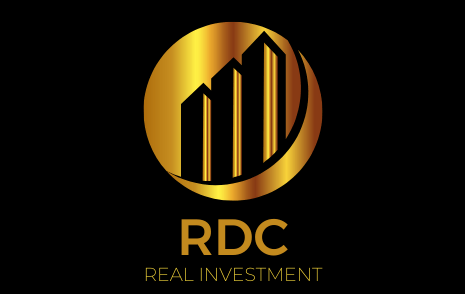OoZing UK staking regulations 2024
UK staking regulations 2024:Navigate UK regulations on staking and stablecoins. Understand compliance, implications, and future trends. Stay informed!
Understanding UK Regulation on Staking and Stablecoins
In the realm of digital finance, particularly in the United Kingdom, the regulatory landscape surrounding staking and stablecoins is of paramount importance. As we navigate through this complex ecosystem, it becomes imperative to grasp the nuances of UK regulations governing these financial instruments.
Let’s delve into the intricacies, exploring the regulatory framework, implications for stakeholders, and the evolving landscape of staking and stablecoins within the UK.
Regulatory Framework: Navigating Compliance
The regulatory framework in the UK concerning staking and stablecoins is multifaceted, characterized by the interplay of various legislative measures and regulatory bodies. At the forefront stands the Financial Conduct Authority (FCA), the primary regulatory authority overseeing financial activities within the UK.
FCA Guidance on Staking-UK staking regulations 2024
The FCA has provided guidance on staking activities, elucidating its stance on the classification and regulatory treatment of staking arrangements. Staking, often associated with Proof of Stake (PoS) consensus mechanisms, involves participants locking up cryptocurrency to support the network’s operations. In the UK, staking activities may fall within the ambit of existing regulatory regimes, depending on factors such as the nature of assets staked and associated risks.
Stablecoin Regulation: Ensuring Stability and Security
Stablecoins, a subset of cryptocurrencies pegged to fiat currencies or other assets, have garnered significant attention due to their potential to enhance efficiency and stability in digital transactions. However, regulatory concerns surrounding stablecoins revolve around ensuring consumer protection, financial stability, and mitigation of risks such as money laundering and terrorist financing.
Implications for Stakeholders: Navigating Compliance Challenges
For market participants engaging in staking and stablecoin activities within the UK, compliance with regulatory requirements is paramount. Failure to adhere to regulatory obligations can result in severe consequences, including financial penalties and reputational damage. Thus, stakeholders must adopt a proactive approach, ensuring robust compliance measures and adherence to regulatory guidance.
Compliance Best Practices-UK staking regulations 2024
Conducting Due Diligence
Prior to engaging in staking or stablecoin activities, market participants must conduct thorough due diligence to assess regulatory requirements, risks, and compliance obligations. This entails comprehensive research into applicable regulations, consultation with legal experts, and ongoing monitoring of regulatory developments.
Implementing Risk Management Measures
Effective risk management is essential for mitigating potential compliance risks associated with staking and stablecoins. Stakeholders should develop robust risk management frameworks encompassing measures such as KYC (Know Your Customer) procedures, AML (Anti-Money Laundering) controls, and cybersecurity protocols to safeguard against illicit activities and protect the integrity of the financial system.
The Evolving Landscape: Future Trends and Developments
As the regulatory landscape continues to evolve, driven by technological advancements and changing market dynamics, several key trends and developments are shaping the future of staking and stablecoins within the UK.
Regulatory Clarity and Innovation
Start looking for some ways to avoid the regulatory clarity and innovation with crypto future top 6 sectors for the bull run:
Regulatory authorities are increasingly focused on providing clarity and guidance to facilitate innovation while safeguarding consumer interests and maintaining financial stability. The emergence of regulatory sandboxes and collaborative initiatives between industry stakeholders and regulators underscores the commitment to fostering responsible innovation in the digital finance space.
Integration of CBDCs and Central Bank Digital Currencies (CBDCs) represent a significant development in the realm of digital currencies, with several central banks exploring the feasibility of issuing CBDCs as a complement to traditional fiat currencies. In the UK.
Hence, discussions surrounding the potential issuance of a digital pound underscore the growing interest in leveraging blockchain technology to enhance the efficiency, security, and accessibility of financial transactions. Just look at what is happening with Nigeria Crypto:
Conclusion-UK staking regulations 2024
In summary, navigating the regulatory landscape surrounding staking and stablecoins in the UK requires a thorough understanding of regulatory requirements, proactive compliance measures, and ongoing vigilance to adapt to evolving regulatory trends.
By staying abreast of regulatory developments and adopting a strategic approach to compliance, stakeholders can navigate the complexities of the regulatory environment while capitalizing on the transformative potential of digital finance. You can start capitalizing the pontential gains of the digital finance with Crypto.com.
Thank you for reading about UK staking regulations 2024. Thank you for reading.Make sure to like, share and comment. Checkout the articles that do not suck below:
Articles You Will Like:
FAQ:UK staking regulations 2024
What is the regulatory authority governing staking and stablecoins in the UK?
The Financial Conduct Authority (FCA) oversees staking and stablecoin activities within the UK, providing regulatory guidance and enforcement.
Are staking activities subject to regulatory oversight in the UK?
Yes, depending on the nature of assets staked and associated risks, staking activities may fall within the purview of existing regulatory regimes in the UK.
What are stablecoins, and how are they regulated in the UK?
Stablecoins are cryptocurrencies pegged to fiat currencies or other assets to maintain stability. Regulation of stablecoins in the UK focuses on consumer protection, financial stability, and mitigating risks such as money laundering and terrorist financing.
What are the compliance requirements for stakeholders engaging in staking and stablecoin activities?
Stakeholders must adhere to regulatory obligations, including conducting due diligence, implementing risk management measures, and complying with KYC (Know Your Customer) and AML (Anti-Money Laundering) regulations.
How can stakeholders stay informed about regulatory developments and compliance obligations?
Stakeholders can stay informed by monitoring updates from regulatory authorities such as the FCA, engaging with legal experts, and participating in industry forums and collaborative initiatives.
Article Disclaimer:
Thank you for your support. We value your trust and strive to offer accurate information to empower your online earnings. While we may earn a small fee from affiliate links, our primary goal is to assist you in maximizing your potential earnings. It’s important to note that we do not provide financial advice; our content is purely educational. Your engagement through likes, shares, and comments is appreciated. Thanks for reading and being a part of our community!


